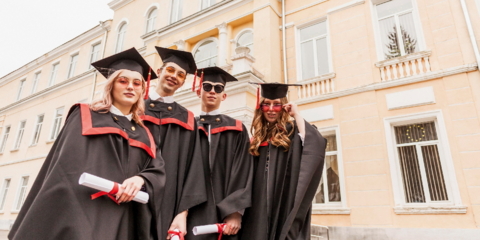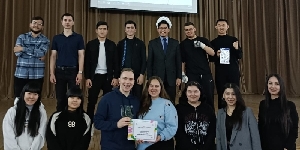
Over the past decade, the number of international students in Russia has virtually doubled and amounted to around 300,000. The figure is on the rise as more and more people from all over the world strive for high-quality Russian education.
As a study destination, Russia is particularly attractive to compatriots living abroad for different reasons. Let’s see how, when and what you should do if studying in Russia is a long-cherished dream of yours.
Among those who wish to become students of Russian universities, there is a special category of compatriots who reside abroad permanently and don't have Russian citizenship. When applying to a university, they can enjoy equal rights with the citizens of the Russian Federation. However, it’s important to officially confirm the compatriot status first. The main thing here is to meet legislated criteria*. If you, your parents, grandparents, and other ancestors are emigrants from the former Soviet Union or the Russian Empire, belong to the nations that have a long history of living in Russia, have a good command of the national language, bear cultural heritage, traditions and customs of Russia, reside abroad permanently – it’s excellent! You can be eligible for Bachelor’s, Master`s, or postgraduate programs at a Russian university on an equal footing with the citizens of the Russian Federation.
*Federal Law № 99 "On the State Policy of the Russian Federation concerning Compatriots Living Abroad."
Compatriots who live abroad permanently and don't have Russian citizenship are entitled to secondary education, higher education, and supplementary professional education in Russia on an equal footing with the RF citizens. You have an opportunity to apply for state-funded and fee-paying places choosing any way to get admitted that can be also chosen by Russian applicants.
So, you've proved your status. Now you are to choose a university and (the most exciting thing!) successfully undergo a competitive selection process.
There are a few options for independent admission to a Russian university. Let's look at them.
A request for the documents confirming the compatriot status
What the compatriot applying to the university asks: As a matter of clarification, what documents exactly must be submitted to confirm the compatriot abroad status? My grandmother was born in the territory of the RSFSR (it follows that I am her descendant in the direct line). May I submit a copy of her birth certificate? If so, must it be notarized?
What the university`s representative answers: To prove your compatriot status, you must submit the copies of documents or any other evidence that confirm, in accordance with RF Federal Law № 99 "On the State Policy of the Russian Federation concerning Compatriots Living Abroad," your compatriot abroad status, namely:
- the USSR citizenship or nationality or its absence at the time of submission – for persons who had the USSR citizenship
- residence in the territory of the Russian state, the Russian Republic, the RSFSR, the USSR or the Russian Federation in the past, the corresponding nationality at the time of leaving this territory, and the nationality or its absence at the time of submission – for emigrants
- direct relationship in the ascending line with specified persons – for compatriots’ descendants
- living abroad – for all specified persons
To confirm your compatriot status, you can just submit the document you specified (you don’t need to have this document notarized) to the admissions office of St. Petersburg University. Also, if your grandmother and you have different last names, you must also submit the birth certificate of your father/mother (whose parent your grandmother is).
The Virtual Admissions Office of St. Petersburg University
22.09.2020







